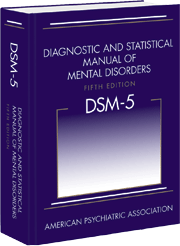THIS ARTICLE IS MORE THAN FIVE YEARS OLD
This article is more than five years old. Autism research — and science in general — is constantly evolving, so older articles may contain information or theories that have been reevaluated since their original publication date.

On 29 May, we hosted a live ‘virtual roundtable’ on the criteria for autism in the newly published DSM-5, the 5th edition of the Diagnostic and Statistical Manual of Mental Disorders.
The panelists included Thomas Insel, director of the National Institute of Mental Health; Catherine Lord, DSM-5 working group member and director of the Center for Autism and the Developing Brain in New York City; and Helen Tager-Flusberg, director of the Research on Autism & Developmental Disorders program at Boston University.
You can listen to the complete discussion above.
Following the DSM-5’s publication last week and a preemptive announcement from the National Institute of Mental Health that it will be directing research away from DSM categories, we heard important clarifications about what the DSM-5 is, and what it is not. We also heard Insel’s vision for how he expects researchers to use the proposed Research Domain Criteria.
Listeners asked many questions, making for a lively and informative discussion about the new guidelines’ impact on autism diagnosis as well as on research. Add your voice by posting reactions and follow-up questions in the comments section below.
Panelists

Catherine Lord Director, Center for Autism and the Developing Brain

Thomas Insel Director, National Institute of Mental Health

Helen Tager-Flusberg Director, Research on Autism & Developmental Disorders, Boston University
The panel was moderated by science journalist Sarah DeWeerdt, a regular contributor to SFARI.org.
By joining the discussion, you agree to our privacy policy.